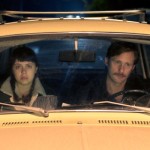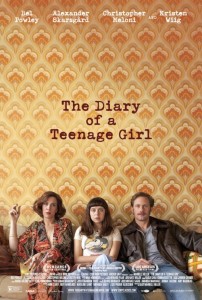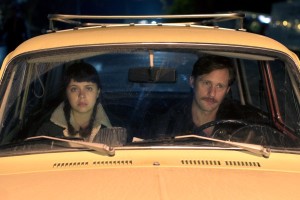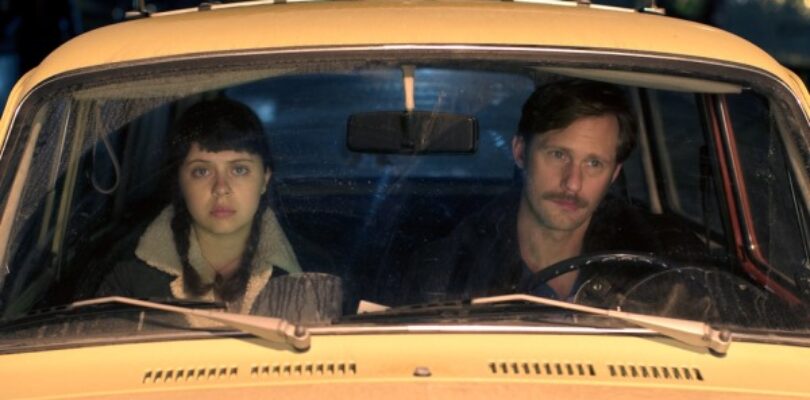
| Producer: | Miranda Bailey, Anne Carey, Bert Hamelinck, and Madeline Samit |
| Release Date: | August 7, 2015 |
| Starring: | Bel Powley, Kristen Wiig, Alexander Skarsgård, and Christopher Meloni |
| User Rating: | |
| Writer: | Marielle Heller |
| MPAA Rating: | R |
| Director: | Marielle Heller |
| Distributor: | Sony Pictures Classics |
| External Info: | Official Website |
When was the last time you saw a cinematic sex scene that felt anything like real life? Movies can’t seem to help turning sex into a glossy fantasy, or else a joke – among recent releases, you can give Trainwreck some credit for realism in depicting 
One key element of the film’s plot seems too shocking to be believable, but even that turns out to be a “truth is stranger than fiction” kind of situation. The film is adapted from Phoebe Gloeckner’s 2002 semi-autobiographical graphic memoir recounting her sexual awakening at fifteen years old in 1970s-era San Francisco. For Minnie (Bel Powley), Gloeckner’s fictionalized version of herself, that process begins with losing her virginity to her mother’s boyfriend, Monroe (Alexander Skarsgård). Its statutory rape, of course, but it was Gloeckner’s real life. And the relationship doesn’t stop there, as Minnie and Monroe carry on behind Minnie’s mother’s (Kristen Wiig) back. Developing feelings of love for a man unequipped to return them, Minnie struggles to fulfill her newfound desires for sex and romantic love in any way she can.
Although Minnie is precocious and intelligent, she’s still innocent and naïve about the very adult matters she’s gotten into. Her journey is beautifully portrayed by Powley, who is twenty-three in real life but still youthful-looking enough to be credible in the role. There’s an interesting layering of texts and subtexts in many crucial scenes. We see the surface dialogue occurring between two characters. Voiceover narration from Minnie’s diary may tell us what she was “really” thinking in the situation. But Powley’s eyes tell us what the character is really “feeling.” She artfully projects an outward façade of assumed adulthood while thoroughly inhabiting an innocent, scared young soul. Skarsgård and Wiig also lend an appropriate amount of depth to their mostly unlikeable supporting characters.
Major credit is due to first-time writer and director Marielle Heller for shaping these performances so sensitively, and for cannily orchestrating the onscreen recreation of Minnie’s internal and external worlds. Jonah Markowitz’s production design and Carmen Grande’s costuming convincingly summon the atmosphere of the 1970s, while animator Sara Gunnarsdóttir brings 
Although The Diary of a Teenage Girl’s story is personal and specific – it’s unlikely many audience members will relate personally to having carried on a sexual relationship in their teens with a parent’s significant other – but its implications are almost universal. While the film is ostensibly about sexuality, its smart enough to probe deeper than that, investigating the wish to be loved that lies at the heart of many, if not most, of our sexual desires. The conclusion the film arrives at is wise, warm, and empowering, and you needn’t be a teenager or a girl to relate to the film and perhaps take some inspiration from it.[box_info]WHERE TO WATCH (powered by JustWatch)
[/box_info]

